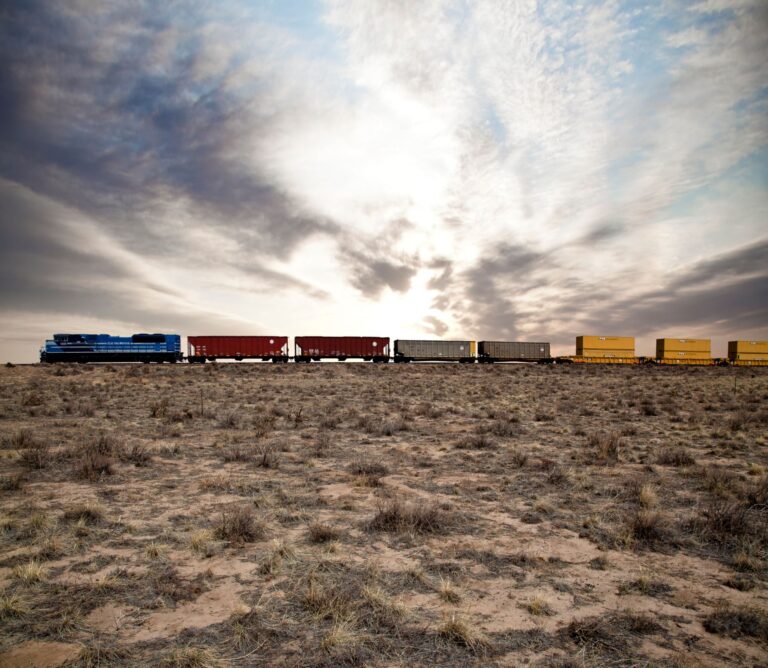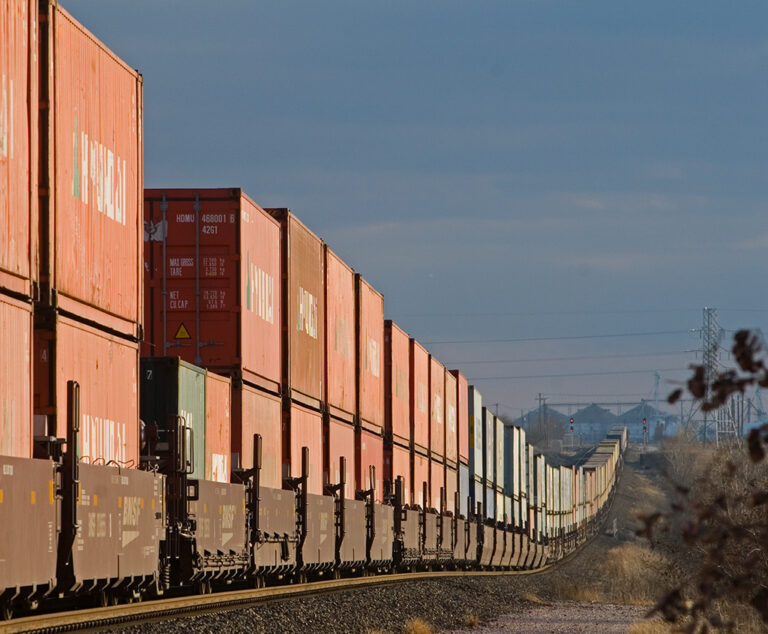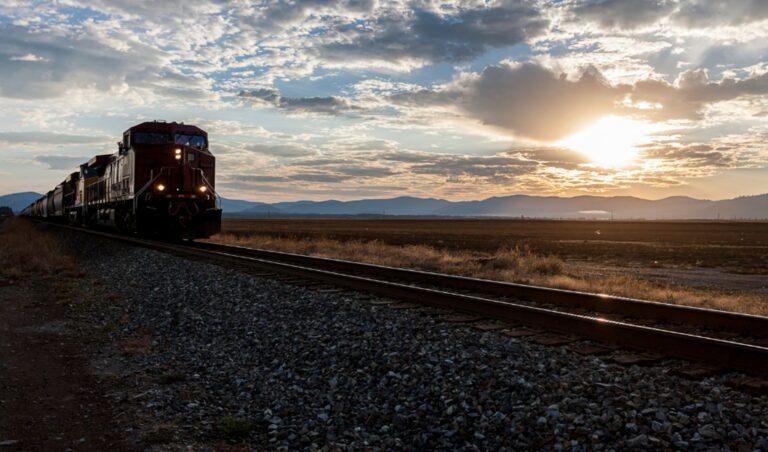- This is an example of the alert banner that we can use to highlight breaking developments.
- Learn More
In the one year since national bargaining opened, eleven unions have ratified twelve national agreements covering 95% of freight rail union employees.
Railroaders take pride in their work, have grit and want to be part of something bigger than themselves. They have helped freight rail move our economy and communities forward for generations. Whether they come from longtime rail families or are new to the industry, rail employees pursue rewarding careers with competitive compensation, comprehensive benefits and growth opportunities that have sustained generations of railroaders.
In 2023, 92% of U.S. employees work in industries with lower average total compensation than the rail industry. Only 8% work in industries with higher average total compensation.
Railroad careers include best-in-class health care plans and generous retirement benefits at a lower cost than those most American workers receive.
Through extensive training, apprenticeship programs and more, freight rail extends opportunities to everyone from recent high school graduates to those with professional degrees.

With dozens of local and national agreements already ratified or pending, the 2025 bargaining round is off to a strong start. Explore the latest status of negotiations and see how railroads are working with unions to deliver benefits for freight rail employees.

In the one year since national bargaining opened, eleven unions have ratified twelve national agreements...
Link to Content

2025 bargaining round has seen historic collaboration between freight rail carriers and the unions Arlington,...
Link to Content

Within the first year of national bargaining, 75% of rail union employees have ratified agreements....
Link to Content

Once ratified, more than 80% will be covered by pattern terms. Arlington, Va. (September 16,...
Link to Content
Find answers to your questions about the freight rail industry and our collective bargaining process.
When did national negotiations start?
The current national collective bargaining agreements between freight rail carriers and rail unions reopened for negotiation starting on November 1, 2024. At that time, “Section 6 notices” were exchanged and bargaining began.
Why have some carriers and unions already announced new agreements?
Some carriers (including those represented by the NCCC) and unions have proactively reached and ratified agreements early in the bargaining process, including both local and national agreements. The early local agreements established a pattern that provides a clear framework for resolving the national round, addressing key employee priorities and providing wage increases, enhanced health benefits and earlier access to paid time off.
Carriers and unions that have reached ratified agreements do not need to participate in the current bargaining round. The early agreements also do not change the timeline for national bargaining.
Who are the parties involved in national railroad bargaining?
The current round of national bargaining includes 28 railroads represented by the National Carriers’ Conference Committee and 12 rail unions:
Click here for more information about the current round of negotiations, including the status of agreements between carriers and unions.
How long does the bargaining process take?
The duration of the process can vary. Some agreements are reached quickly, while others may advance through several stages of the RLA process. Our goal in this round is to reach timely, voluntary agreements that benefit all stakeholders and are consistent with the pattern set by early national and local agreements.
The National Railway Labor Conference (NRLC) is an association representing all U.S. Class I freight railroads and many smaller freight and passenger lines. Through its National Carriers’ Conference Committee (NCCC), the NRLC leads national negotiations with the 12 major rail labor organizations, impacting more than 100,000 employees.